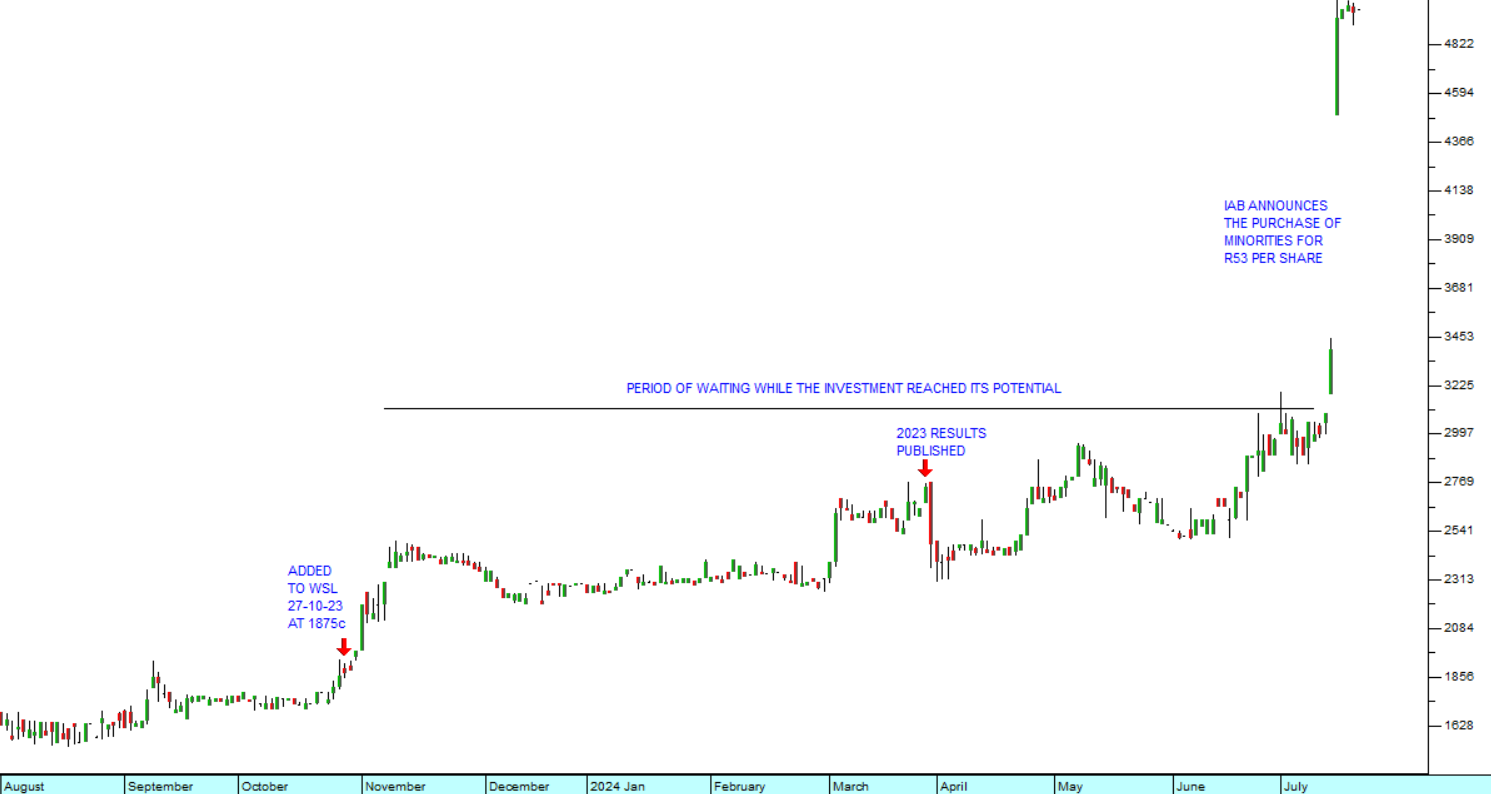Bell Equipment
We are often asked what prompts us to add a share to the Winning Shares List. The answer is that it is a variety of factors – but usually because the share appears to be very cheap in relation to its fundamentals. In other words, we expect it to be upwardly re-rated as its fundamental value becomes recognised by the institutional fund managers. A good example is Bell Equipment.
Bell Equipment is a company which was started 70 years ago in northern Natal by Irvine Bell as a small engineering and repair service mainly for farmers. It has grown into a large international company focusing on the production and distribution of articulated dump trucks (ADT) with substantial interests in America and Europe.
The company was listed on the JSE in May 1995 and now the Bell family which still holds 70% of the shares has taken the decision to buy out the minorities and delist it from the exchange. There are probably a number of reasons for this decision, but a major one is undoubtedly that the biggest market for ADTs is in America and that represents their best opportunity for future growth.
At the end of their 2023 financial year, America represented 28% of their business with 48% coming from Africa (including South Africa) and 16% coming from Europe (including the UK) with Australia accounting for 8%.
A second reason for delisting is almost certainly the difficulties associated with doing business in this country. These range from the cost and availability of electricity to the difficulties in coping with our very inefficient ports and rail transport system.
In any event, the Bell family is now offering minority shareholders R53 per share for their shares and that has represented a major opportunity for private investors to make a significant capital gain in a relatively short period of time. Consider the chart:

We started watching the share late last year when it became apparent that their results for the 2023 year would be exceptional. This prompted us to add the share to the Winning Shares List (WSL) on 27th October 2023 at a price of 1875c in anticipation of a strong upward rerating when the results came out.
Bell’s results for the year to 31st December 2023 were published on 28th March 2024 and were everything we had been hoping for. Revenue was up an impressive 32% and headline earnings per share (HEPS) increased by a whopping 69%. The share price rose to reflect the improved results and by July 2024 it was trading for 3100c – a gain of 65% in 10 months.
The key to its future prospects was in its price:earnings (P:E) ratio which was sitting at an absurdly low level of just over 3 when we added it to the WSL. This showed us that there was enormous value in the company which was not recognised by institutional fund managers. The possibility for that value to be realised made us keep it on the WSL. At 3100c on 11th July 2024, even after its results, it was still on a P:E of just 3,88 against the average P:E for the JSE at 13,4. To us, it looked like a bargain.
Obviously, one of the negatives about a company like Bell is the fact that it produces and sells ADTs. This means that it necessarily has huge amounts of money tied up in working capital and its profits are linked to the volatile agriculture and mining industries. The Ukraine war had a negative impact on its business in Europe, but its Russian business was never more than about 5% of its turnover.
The company has been badly affected by the port delays in South Africa which prevented it from receiving imports from suppliers and exporting its products to other parts of the world. Loadshedding too has had a major impact on its business.
All these negatives combined with the fact that its best growth opportunities were in America eventually persuaded the Bell family to buy out the minorities and take the company private. That decision gave us a further major gain, taking the share price up to around 5000c after the announcement last week.
Altogether, anyone who bought the share when we added to the WSL has made a return of 166% in nine months.
← Back to Articles